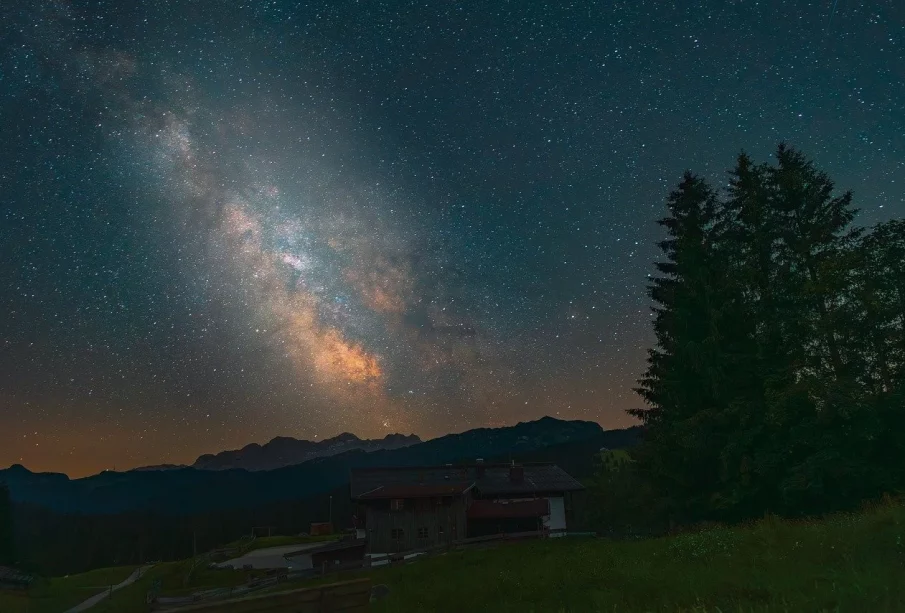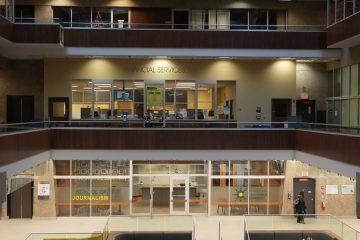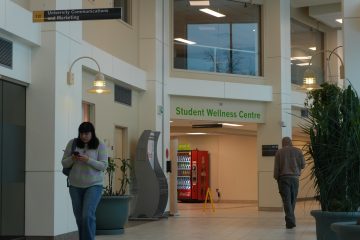UofR’s astronomy professor uncovers cosmological mysteries
University of Regina’s (UofR) astronomy professor Samantha Lawler has always shot for the stars. Whether it be teaching astronomy courses at the university, playing with massive telescopes, or writing papers on satellite proliferation, Lawler is always thinking about the space. We were able to catch up with her to discuss her research and love for the cosmos.
Lawler has been a space explorer since she was young, citing her current career as her “dream job.” She is a professor of astronomy at Campion College, in the department of physics. She is also able to focus her time on conducting further research into the field.
“I’ve always been interested in it. And it’s cool that I found a job where I get paid to learn things about space and then teach people what I learned,” says Lawler.
Her love of science fiction also fueled her desire to pursue a career in astronomy. She cites classics such as Star Wars and Star Trek as major inspirations.
Lawler’s career so far
Lawler covets the opportunity to conduct research in Saskatchewan. “It’s amazing, because I get to live in a place with dark skies where I can see the Milky Way from my house,” says Lawler. She adds that “I get to use giant research telescopes and there’s very few professional astronomers who get to live in a place where they can see the stars. And I’m very grateful for that.”
One of Lawler’s most memorable projects has been studying the Kuiper Belt. The Kuiper Belt is a circular disc composed of icy bodies which are beyond the planet Neptune. This led to her discovery of a distant object called 2020 VN40 earlier this year. The object is classified as a trans-Neptunian Object (TNO), which are small planets most usually made up of bodies of ice and rock that orbit the sun beyond Neptune.
Lawler says her career keeps her busy, but she enjoys the workload. “I’m doing so many things right now. I’ve got a large program on the Canada, France, Hawaii telescope, looking for new Kuiper belt objects that have just wrapped up and we’re working on analyzing data from that,” Lawler recounts. She usually uses a huge telescope in Hawaii for her research, which she says she has to apply to use every year.
Among other projects, she frequently runs computer simulations, on questions such as “what will these orbits do over millions of years?” and “what does that tell us about how the solar system formed?”
She was also the recipient of the University of Regina’s award for excellence in public education in 2025. This title is awarded to an academic who makes significant contributions to the community, by sharing both expertise and research with the public which can be achieved by way of workshops, media or other means.
I love Pluto, it’s got an interesting orbit [and] five moons that all have interesting orbits. -Samantha Lawler, professor, UofR
The pros and cons of satellites
Lawler also writes papers about the proliferation of satellites. A satellite is composed of any natural or artificial object that orbits a large, celestial body, of which the two major ones are stars and planets.
Artificial satellites are any man-made machine in space. There are significant pros in using artificial satellites for things such as advancements in communication and navigation. Another benefit of these satellites comes in the form of weather forecasting.
Lawler however also talks about some negatives to the man-made satellites. Man-made satellites that are no longer in use contribute to garbage in space, which can accumulate to big amounts over time.
Another issue, Lawler mentions, comes in the form of satellites crashing down, which appears to be common in Saskatchewan.
“They’re literally impacting Saskatchewan, right? We had a [SpaceX] Crew Dragon trunk that smashed into farmland near Ituna last year.”
Lawler recently submitted a paper on an incident where another Starlink satellite crashed into a field earlier this year. She postulates that there are many more to be discovered.
“What are the implications of finding one piece of a Starlink satellite, when there’s 8000 of them above us? This is the easiest place in the world to find pieces […] so how many pieces have fallen that we haven’t found? That is really scary, “says Lawler.
Interesting parts about space
Lawler says that Pluto is her favorite object to look at. “I love Pluto, it’s got an interesting orbit. It has five moons that all have interesting orbits,” says Lawler.
“We have beautiful pictures of it from a spacecraft. So, we know a lot more about it than any other Kuiper Belt object. So, I love Pluto,” she adds.
Lawler was not disappointed in Pluto being demoted to dwarf planet and rather thinks that it’s great. “I like the fact that it’s a dwarf planet. I think that’s fantastic.”
She also shares with us her thoughts about extra-terrestrial life. “I don’t research it, but I do teach it, and I am very interested in it. That is the most interesting question you can ask [that is] regarding the existence of extra-terrestrial life,” she thinks.
Lawler believes there is no way Earth is the only planet that has life but “until we find definite life out there. We don’t know the answer for sure. It could be sparse.”
The cosmos is fascinating
The spaces and what lies beyond our planet has fascinated humans since the dawn of time. We have all looked up at the night sky and wondered what lies up there at least once.
To have a full time researcher who studies the cosmos on our own campus is absolutely brilliant. Lawler teaches an introduction to astronomy (ASTR 101) lecture in both the fall and winter semester. Students can take the lecture as a fun elective. Who knows, one might find a new niche to learn about and maybe even a new career to pursue after taking a class with Dr. Samantha Lawler.







